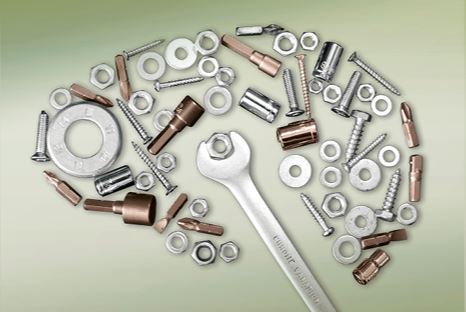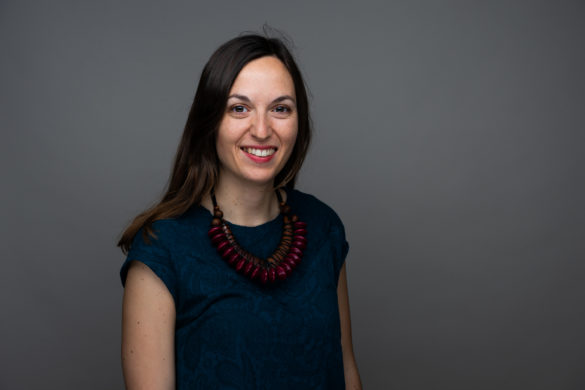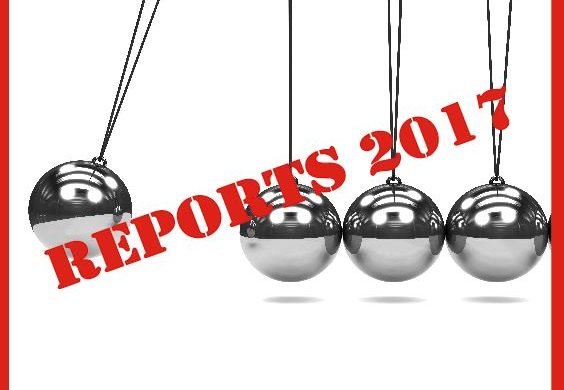Report from Anna Latorre, Rome, Italy visiting the Sobell Department of Motor Neuroscience and Movement Disorder – UCL Institute of Neurology, Queen Square – London, UK under supervision of Prof. Kailash Bhatia
(Term: 1.2. – 22.3.2016)
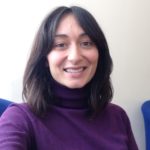 I spent almost two exciting months at the Sobell Department of Motor Neuroscience and Movement Disorder, to improve my knowledge in Movement Disorders under Prof. K. Bhatia supervision. My everyday clinical activity consisted in attending:
I spent almost two exciting months at the Sobell Department of Motor Neuroscience and Movement Disorder, to improve my knowledge in Movement Disorders under Prof. K. Bhatia supervision. My everyday clinical activity consisted in attending:
– Movement Disorders Clinic
– Botox Clinic (for movement disorders)
– Prof. Bhatia ward round at the UCLH Institute of Neurology
– Motor Neuron Disease Clinic
Beside clinical activity, I participate to lectures and meetings, such as Movement Disorders video session (ever Wednesday), Gowers Grand Round lecture (every Thursday), and Neuro-radiology meeting (every Friday).
This everyday full schedule gives me the possibility to view many different and rare case of movement disorders improving my clinical reasoning and critical thinking, and progressing in differential diagnosis. Moreover, I have learnt new treament strategies and drug approaches (above all botulinum toxin and deep brain stimulation). Finally, I found out a different health system and a professional doctor behaviour that I really appreaciate, and suggest me how to improve my relationship with patients.
I have to say that it is the right place for visiting fellows to go. First of all, they are really organized in hosting people coming from all over the world. It easy to have access to resources, library, clinic, meeting and to have contact with colleagues and hospital personnel. You feel warmly welcomed. Secondly, you can confront yourself with people coming from different countries, and this motivates you in do your best on the job and increases your interest for the subject. At last but not the least, Prof. Bhatia is a great Professor who takes care of his fellows, and does his best to teach all his knowledge and especially how to think in term of clinical reasoning. He encourages his fellows in improving their skills from all the different prospective. He does his duty with great responsibility.
In conclusion, it was a wonderful working and personal experience for me, much better than I would expect. I am very grateful to the EAN and Prof. Bhatia for giving me the opportunity to do this fantastic experience.
Report from Isil Tatlidil – Narlidere, Izmir, Turkey visiting the University Hospital Carl Gustav Carus Dresden, Department of Neurology, Dresden-Germany, under supervision of Prof. Heinz Reichmann
(Term: 29.2.-8.4.2016)
It was a great pleasure for me to participate EAN Clinical Fellowship in Karl Gustav Carus University Hospital of Dresden between the period of 29.02.2016 and 08.04.2016 under supervision of Prof. Dr. Heinz Reichmann. The goals of my fellowship are to enhance my clinical practice in the field of Refractory Epilepsy and Movement Disorders, particularly advanced-stage of Parkinson disease, to learn about clinical application of DBS and VNS and to observe the general clinical approaches of Neurology in Uniklinikum Dresden.
After a warm welcome from Prof. Dr. Reichmann my first two weeks in epilepsy ward started. Epilepsy Ward is an interdisciplinary ward consisting of video monitoring EEG units involving patients that is treated both by neurology and neurosurgery. During those two weeks almost every day I joined the ward round in the morning and attended the daily routine of the ward. Primarily, I focused on the patients having refractory epilepsy that require further intervention such as VNS and Epilepsy surgery. That was also a good opportunity for me to observe the application of the latest epilepsy drugs such as Eslicarbazepine, Brivarecetam, Perampanel in clinical practice. Besides, I was able to attend epilepsy surgery, VNS implantation/extraction operations providing me to see the whole picture of the clinical approach. Video monitoring EEG facility of the ward gave me the opportunity to cover the cases with the semiology of seizures which plays an important role to determine the epileptic foci. There is EEG-conference that the interpretations of EEG tests are discussed under supervision of Dr. Susanne Hallmeyer-Elgner, improving my EEG-interpretation skills in every midday. It was a great experience for me to attend outpatient’s clinic of Dr. Susanne Hallmeyer-Elgner teaching me a lot for the clinical practice. I also had the opportunity to attend the monthly interdisciplinary Coincil of Neurology and Neurosurgery which refractory epilepsy cases from all over Sachsen Region are discussed for the decision of operation or alternative other treatments. During those two weeks it was great to be with Dr. Sigrid Wöpkin and Dr. Hallmeyer-Elgner who were really helpful and motivated to explain everything.
My second two weeks were in Stations S1 including advanced-staged-Parkinson-Disease cases and the Movement-disorder-cases who require further diagnosis. I was with the team of Dr. Andreas Hermann. It was a great experience to see a lot of advanced-stage-cases mobilizing with rollator without dyskinesia and to explore what is behind! Most of the Cases having Idiopathic Parkinson Disease had either Apomorphine pump or DBS or both. Attending ward round in every morning enriched my clinical skills in management of Advanced-Stage Parkinson cases. During the day time I was able to attend the daily routine of the ward such as L-dopa test, Apomorphine test, Apomorphine pump adjustment, first phase of DBS testing and further adjustment of DBS in the clinical follow-up with Dr. Kai Löwenbrück. That was a great opportunity to understand the general principle of DBS and learn about DBS adjustment in Clinical Practice. Cases having Parkinson Plus syndrome such as MSA, CBS, PSP were also quite helpful for me to enhance my clinical practice. Besides, I also observed the occupational therapy, physiotherapy, UPDRS testing, cognitive assessment of the patients. For several times when A big ward round took place I also attended the ward round of the rest of station 1 which consist of patients requires further treatment which diagnosed as NMO , CIDP, ALS, Neurosarcoidosis, MS etc. It was a great pleasure to join the ward round with Prof. Dr. Reichmann to observe his clinical approach in Practice.
My last two weeks were mostly in outpatient’s clinic. I mainly attended to the Epilepsy and movement disorders Policlinics. It was great to attend general movement disorders Policlinic with Dr. Annika Saak and Movement disorders Policlinics of DBS cases with Dr. Lisa Klingelhöfer. Both enriched my clinical Practice and gave me the opportunity to learn about fine adjustment of DBS in outpatient’s clinic part. It was great to learn each step of DBS adjustment…First testing phase in the ward, follow-up in the ward and follow up in the out patients clinic, which is one of my major goals of my fellowship! Besides, I spent short but efficient time to look over peripheral nerve ultrasound, Transcranial Doppler USG, Botox application as well as policlinics for sleep disorders, muscle disorder and neuromuscular disease disorders. Additionally, observing the several needle EMG applications with the technique of Quantative EMG were definitely useful for me and helped me a lot to improve my EMG practice. I am thankful to Dr. Jochen Schäfer and Ulrike Reuner helping me to arrange my time in the last-two-weeks activity.
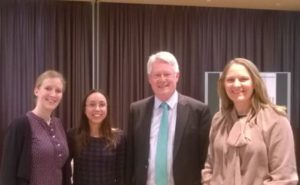
During the period of my whole fellowship I was able to attend the general routine educational part of the clinic: Each morning there was half-hour-radiology conference that the radiological image of the current cases from all over the clinic were discussed, improving my radiological skills in Practice. Each Tuesday at 16.30-17.00 PM there were lectures and each Friday morning there were the presentation of a literature which all were beneficial to enhance my knowledge. Additionally, joining the 20.th year anniversary of Prof. Dr. Reichmann was a great experience for me. Understanding Most of the part of the lectures in German motivated me to improve my German. Two days of my clinical fellowship were on Easter holiday. That was a great opportunity for me to visit my friends. On the other hand I compensated those days by doing overtimes and attending late shifts. I attended one part of weekend shift and the late shift to observe the process in stroke unit. I had several late shifts in emergency room, in which I came across with a case of hyperacute basilary thrombosis which r-tpa was applied and endovascular surgery was planned, providing me to observe the process of applications of r-TPA and endovascular surgery in the clinic. By spending several extra hours in the hospital I also observe the clinical procedure of Neurological ICU unit.
During my Fellowship I had a great opportunity to improve my language skills in German. Even though, there were some times that I had difficulty to understand, most of the colleagues were quite helpful to translate the part I could not understand in English. Accessing the data of the patients via software system of the hospital was also quite helpful to understand most of the cases.
I think I had an unforgettable-six-week in Carl Gustav Carus university hospital and reached my all goals. Besides improving my skills in fields of Epilepsy and movement disorders, I also experienced the general clinical approach of the clinic in most of fields of daily routine. That gave me the opportunity to make comparison between the clinic I worked and the clinic hospitating me. Thus, my horizon is widened in the clinical practice. It was great to experience the different ways of application of a clinical procedure. Finally, I would like to express my gratitude to EAN providing me the opportunity of the clinical fellowship. I would like to cordially thank to Prof. Dr. Heinz Reichmann supporting me both during the application process and my clinical fellowship period. Additionally, I am thankful to everyone who supporting me through the whole period of the process and the fellowship.




